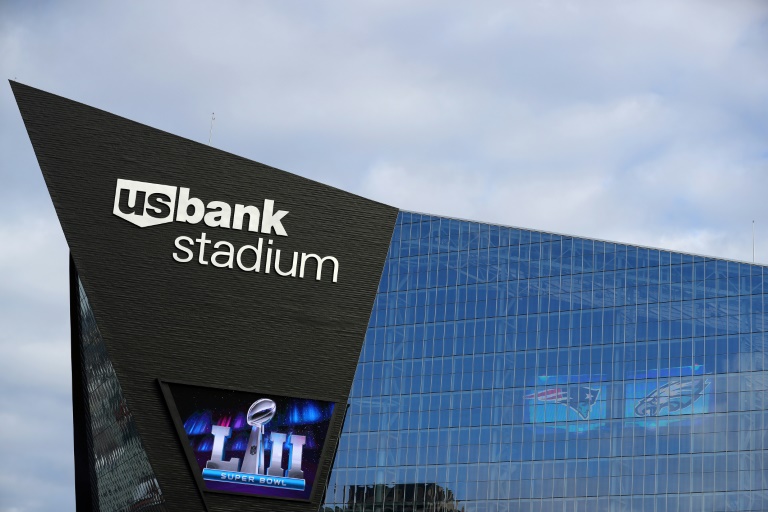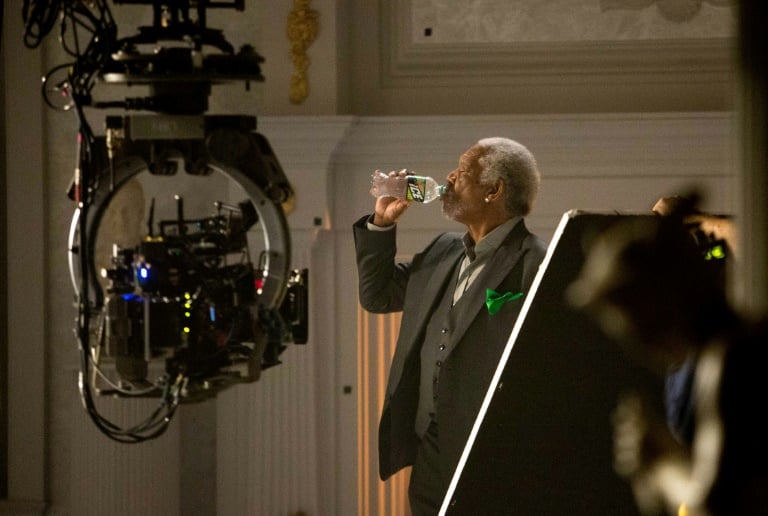Daily Lotto results: Thursday, 12 December 2024
Amid a politically charged environment, the advertising extravaganza accompanying the biggest US sporting event is expected to stick to traditional marketing themes, analysts say.
The American football championship matchup between the New England Patriots and Philadelphia Eagles offers a rare chance to reach more than 100 million viewers at a steep cost of some $5 million for a 30-second spot. Companies are eager to show creativity to spotlight their brand, but may not want to generate controversy.
“We’re definitely going to see advertisers work hard to steer clear of any overtly political messages, but at the same time I think it’s smart strategy to focus on what I call unifying social issues,” said Villanova University professor of marketing Charles Taylor.
Although the NFL and broadcasters discourage politically tinged ads for the event, last year’s Super Bowl showed some spots offering subtle digs at President Donald Trump or his policies on immigration. One showed what appeared to be a family shut out by a large border wall.
“For the most part, those ads didn’t perform very well, ” Taylor said.
Timothy Calkins, marketing professor at Northwestern University, agreed that advertisers are keenly aware of the polarization of Americans on many issues.
“Most companies don’t want to take sides on polarizing issues,” Calkins said.
“If it’s not core to your brand you don’t want to find yourself in the middle of a social fight.”
Calkins said most marketers will stick to “safe” themes focusing on products without shocking viewers.
“It’s very swirly waters, and if you talk about your potato chip, you will be OK,” he said.
Many pre-released ads show familiar products and themes: celebrities such as actors Morgan Freeman and Danny DeVito pushing products like Mountain Dew soda and M&Ms, pitches for cars, Tide detergent and Pringles chips.
One new element will be Amazon’s spot promoting its Alexa-powered devices, with an appearance by Jeff Bezos with a humorous “Alexa Loses Her Voice” theme. Another ad from Sprint uses talking robots and a humorous take on artificial intelligence to promote the wireless carrier.
Beer producer Stella Artois will be promoting the clean water charity water.org while rival brewer Budweiser will highlight its program offering canned water for disaster relief.
– No sex, please –

Super Bowl LII offers a rare opportunity for advertisers to reach an audience of more than 100 million viewers
Brands are acutely aware of potential boycotts for being too political, and of the growing #MeToo movement over sexual harassment.
That means ads with sexual innuendo featured in previous Super Bowls are likely to be absent.
“It would be a mistake” to use sexual themes, said Mike Bernacchi, marketing professor at the University of Detroit Mercy.
“Women would come down really hard, and men too. This is a different day and age right now.”
Many of the ads pre-released to the public appear noncontroversial but it is possible to see ads that take a more political tone.
“There may be some advertisers that decide to try to tie Trump’s shoelaces together,” Bernacchi said.
Some creative marketers may find a way to frame a message on important issues without offending people, however.
“They will be making big broad statements about the values of the brand,” said Jim Nail of Forrester Research.
Rebecca Brooks of the market research firm Alter Agents said companies may address political issues indirectly.
“You might see more gender inclusion or even more gender diversity,” she said. “You might see a gay couple or a clearly first generation immigrant family.”
– Pulling a surprise? –

Actor Morgan Freeman appears in a Super Bowl ad for PepsiCo’s “Mountain Dew Ice”
While some advertisers release their spots ahead of the event to generate buzz, others maybe be holding back in order to surprise.
“A real question is whether a brand or several brands will run a surprise ad on the Super Bowl where they make a statement about some of the political issues roiling the country,” Calkins said.
“You have to imagine some brand is going to step up. At this point we don’t know who that will be or if that will transpire.”
The Super Bowl offers a unique opportunity for advertisers to reach a large swath of the US population, in an era where marketing is moving to online platforms with targeted and programmed ads tailored to specific audience segments.
Nail of Forrester Research said some advertisers may not be making the best use of their marketing funds.
“You are fundamentally talking to a lot of people who have zero interest and will never have a lot of interest in that product,” Nail said.
Despite the evolution of advertising, Nail said the Super Bowl probably won’t see targeted ads even if it moves to internet platforms.
“This is a communal event that you watch with your friends,” he said. “In that sense you can’t do targeted advertising even if the technical capability is there.”
Download our app and read this and other great stories on the move. Available for Android and iOS.